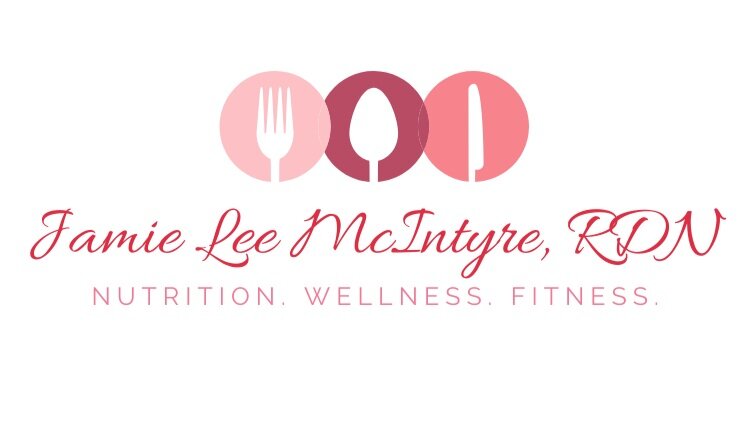How to Lower Cholesterol Naturally: Diet, Lifestyle & Food Tips from a Dietitian
Elevated cholesterol is one of the biggest risk factors for heart disease—still the leading cause of death for men and women in the U.S. While some risk factors are outside our control (like age, sex, and family history), there are many evidence-based strategies to lower cholesterol naturally and support long-term heart health.
As a registered dietitian, I often hear questions about which foods to eat (or avoid) to improve cholesterol numbers. Let’s break down what actually impacts your cholesterol—and how to create a heart-healthy diet that works.
Cholesterol 101: Understanding the Basics
First, it’s important to know that dietary cholesterol and blood cholesterol are not the same thing.
Dietary cholesterol is found in foods like eggs, shrimp, and shellfish.
Blood cholesterol is what your doctor measures with a blood test.
Research now shows that eating foods high in dietary cholesterol does not significantly raise blood cholesterol for most people. That means you don’t have to cut out eggs or shrimp entirely. In fact, these can be excellent sources of lean protein in a balanced diet.
What really impacts blood cholesterol?
Saturated fats (found in fatty meats, full-fat dairy, butter)
Trans fats (found in partially hydrogenated oils, some baked goods, fried foods)
Aim to keep saturated fat to less than 7% of total daily calories and avoid trans fats completely to lower LDL (“bad”) cholesterol.
Not All Cholesterol Is Bad
You actually want higher levels of HDL cholesterol (the “good” cholesterol) because it helps remove LDL from the bloodstream.
To boost HDL levels, focus on:
Legumes (beans, lentils, chickpeas)
Colorful fruits & vegetables
Oily fish like salmon, sardines, and tuna
Healthy fats like olive oil, avocado, and nuts
Best Foods to Lower Cholesterol Naturally
There isn’t a single “magic food,” but a heart-healthy pattern makes a big difference.
1. Eat More Soluble Fiber
Soluble fiber helps reduce LDL by blocking cholesterol absorption in the gut. Aim for 5–10g of soluble fiber daily (and 25–35g total fiber).
Top sources include:
Oats and oat bran
Brussels sprouts and other cruciferous veggies
Apples, pears, and berries
Kidney beans and lentils
2. Add Omega-3 Fatty Acids
Omega-3s don’t directly lower LDL, but they can:
Reduce triglycerides
Lower blood pressure
Reduce the risk of blood clots and sudden heart attack
Aim for two 3–4 oz servings of oily fish per week (salmon, tuna, mackerel). If you don’t eat fish, ask your doctor if a fish oil supplement is right for you.
3. Include Avocados and Healthy Fats
Avocados provide both monounsaturated fats (MUFAs) and fiber—two powerful cholesterol-lowering nutrients. Just keep portions moderate since they’re calorie-dense.
4. Try Plant Sterols and Stanols
Plant sterols block cholesterol absorption. You can find fortified foods like:
Margarines with added sterols (e.g., Benecol)
Fortified orange juice
Yogurts with added plant sterols
Aim for 2g/day of plant sterols to lower LDL by 5–15%.
Lifestyle Tips Beyond Diet
Food is just one piece of the puzzle. For the best results, combine your eating plan with:
Regular exercise (150 minutes/week)
Weight loss, if needed, toward a healthy body weight
Limiting alcohol
Avoiding smoking
For some people, these steps are enough to bring cholesterol into a healthy range. Others may still need medication—your doctor can help you decide.
Sample Day: Heart-Healthy Eating Plan
Here’s an example of a day that incorporates cholesterol-lowering foods:
Breakfast
½ cup dry oats soaked overnight in 1% plain yogurt + almond milk
Add cinnamon, 10 walnuts, and 1 chopped apple
Lunch
100% whole wheat wrap with ½ mashed avocado, 3 oz tuna, lettuce, tomato
Side spinach salad with slivered almonds, strawberries, and olive oil vinaigrette
Snack
Smoothie with mango, kale, yogurt, almond milk, ground flaxseed
Dinner
4 oz broiled salmon with lemon + olive oil mist
⅔ cup cooked quinoa with 1 tbsp Benecol
2 cups roasted brussels sprouts, carrots, cauliflower
Dessert
1 cup frozen cherries + ½ cup light cottage cheese
By focusing on a balanced diet, portion control, and lifestyle habits, you can make a big difference in your cholesterol levels and heart health—without giving up all the foods you love.

